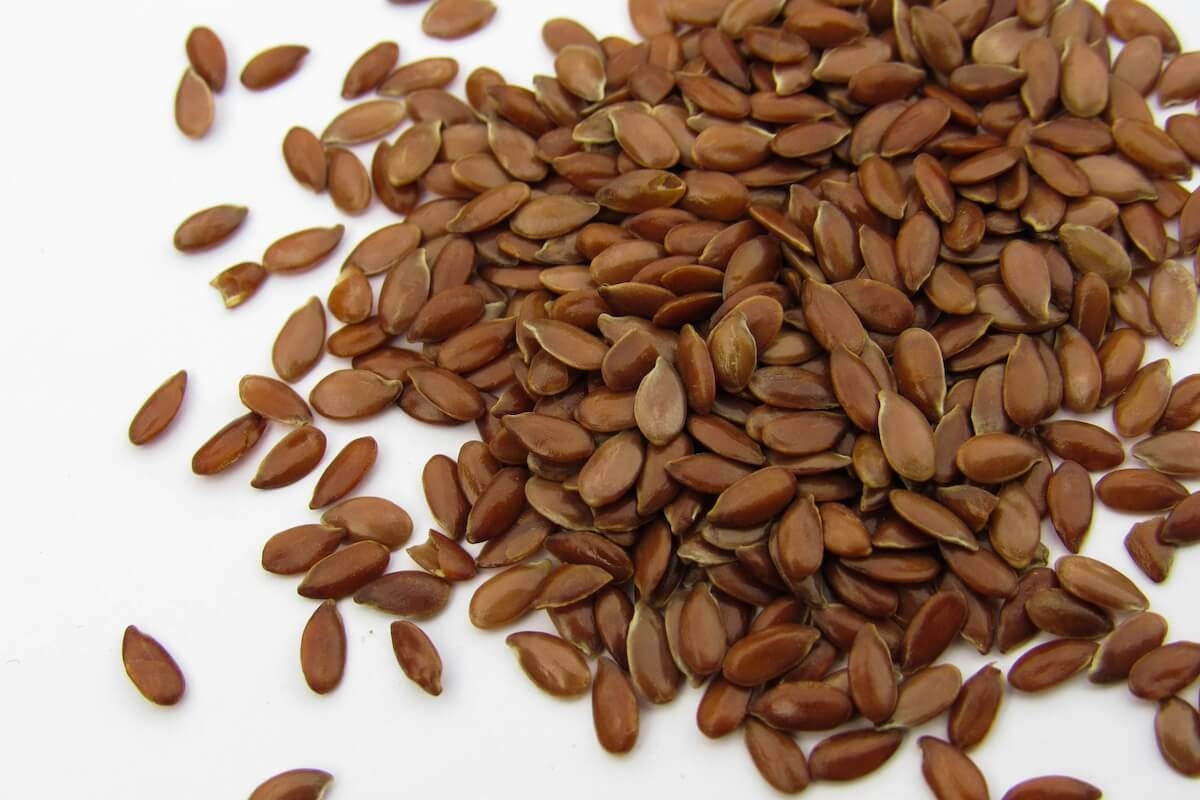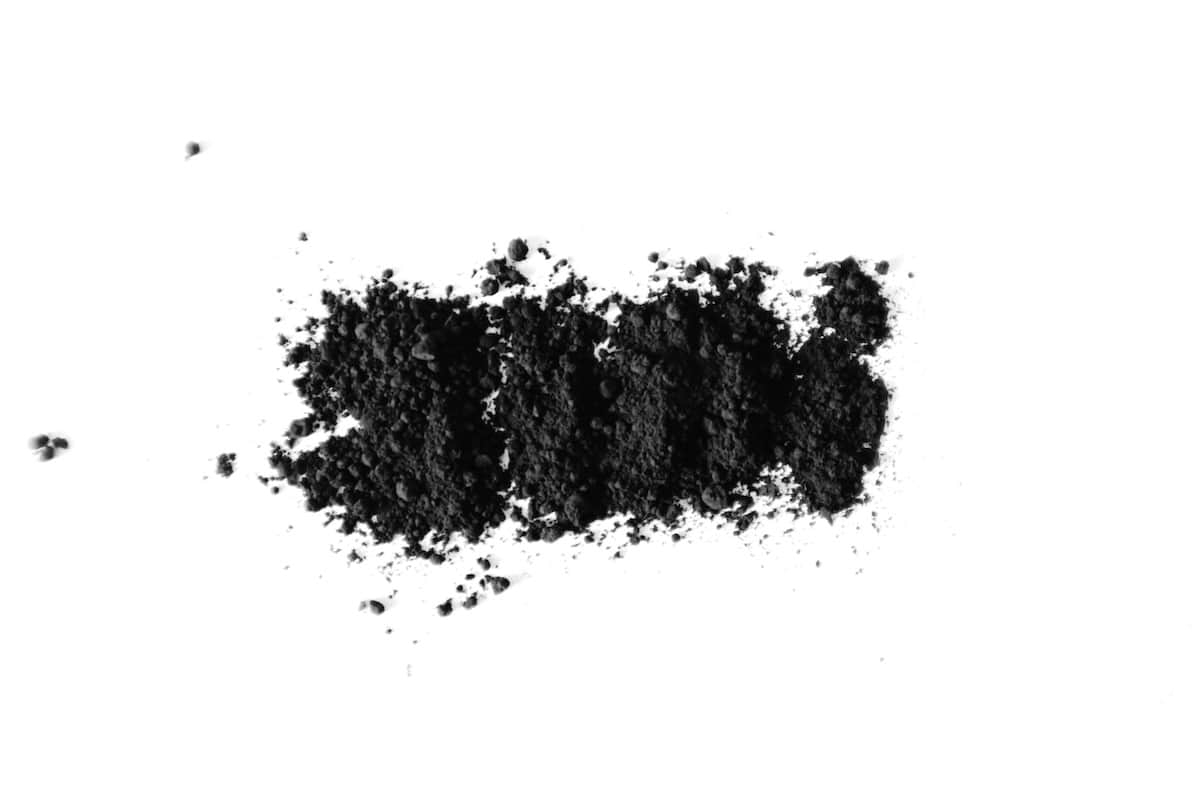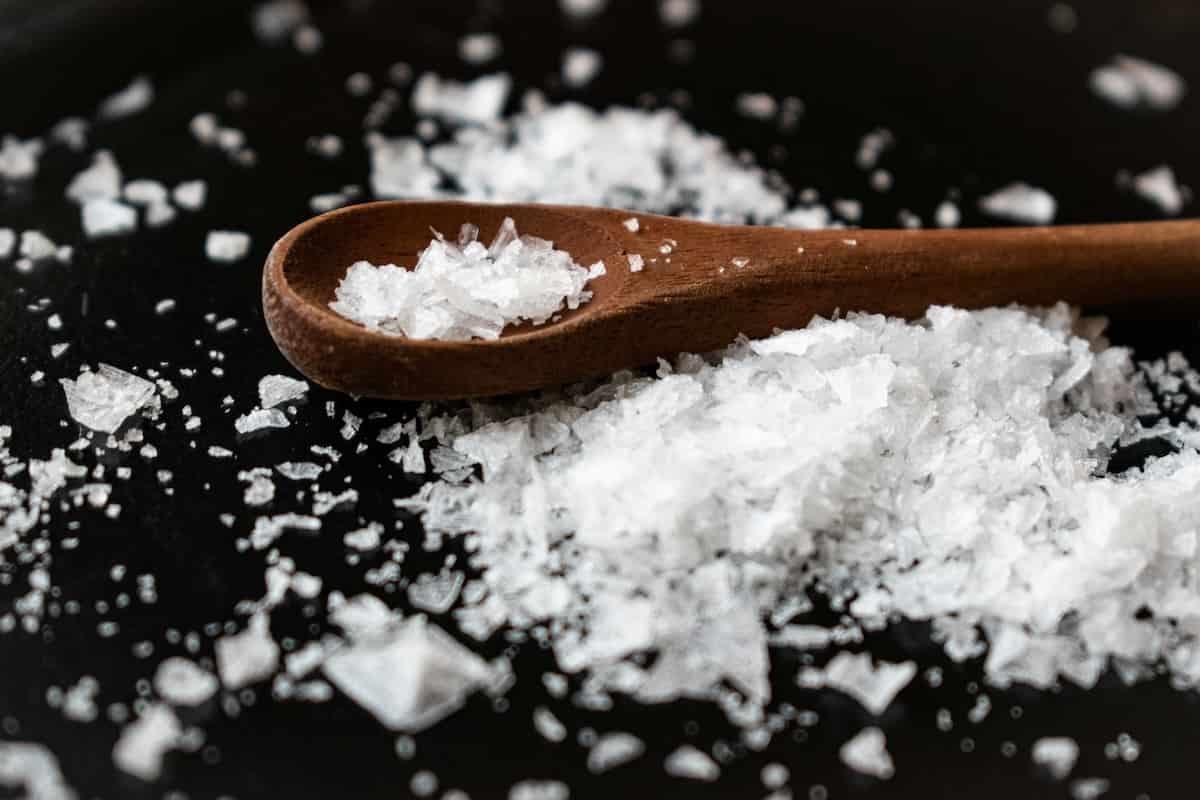Last update: July 15, 2025
4 minute read
Do Flaxseeds Expire?: How to Extend Their Shelf Life and Spot Spoilage
Are your flaxseeds still fresh, or have they seen better days? Learn how to properly store flaxseeds and identify signs of spoilage to keep your meals nutritious and tasty.

By Derick Rodriguez, Associate Editor
Edited by Dr. Dimitar Marinov, MD, RDN, PhD

Have you ever reached into your pantry for some flaxseeds, only to wonder if they're still good to use? Flaxseeds are a fantastic source of nutrients, but like all food items, they can expire.
In this post, we'll dive into how long flaxseeds last, how to store them properly, and how to tell if they've gone bad. Let's make sure you're getting the most out of these tiny powerhouses!
Key takeaways
- Whole flaxseeds can last up to 2 years if stored properly
- Ground flaxseeds have a shorter shelf life—about 1-2 months in the fridge
- Signs of spoilage include a bitter taste, an off smell, or discoloration
Understanding flaxseed shelf life
Flaxseeds, whether whole or ground, have different shelf lives due to their processing and storage methods.
Whole flaxseeds
Whole flaxseeds are more robust and can last 24 months when stored in a cool, dark place like your pantry, according to the USDA. If you refrigerate or freeze them, they can stay fresh for up to one year beyond their best-by date.
Ground flaxseeds
Once flaxseeds are ground, they expose more surface area to air and light, which can speed up spoilage. Ground flaxseeds generally last about a few weeks at room temperature and up to a year if stored properly in an airtight container.
However, if you store them in the refrigerator or freezer, they can stay good for 1-2 years.
Proper storage techniques
To maximize the shelf life of your flaxseeds:
- Use airtight containers: Seal your flaxseeds in airtight containers to keep out moisture and air.
- Keep them cool: Store the containers in the refrigerator or freezer.
- Avoid light and heat: Place your flaxseeds in dark containers or cupboards away from sunlight and heat sources.
By controlling these factors, you reduce oxidation and prevent the seeds from turning rancid.
Signs your flaxseeds have gone bad
It's important to check your flaxseeds before using them. Here are some signs that they might have expired:
- Off smell: Rancid flaxseeds often have a sour or bitter odor.
- Bitter taste: If they taste bitter or sour instead of their usual nutty flavor, they're likely spoiled.
- Discoloration or mold: Visible changes in color or the presence of mold indicate spoilage.
If you notice any of these signs, it's best to discard the flaxseeds.
The impact of temperature on flaxseeds
Temperature plays a significant role in how long flaxseeds remain fresh. Flaxseeds stored at refrigerated temperatures maintain their quality for over 2 years, while those kept at warmer temperatures can become rancid within a few months.
Health benefits of flaxseeds
Flax seeds are not only valued for their shelf life but also for their numerous health benefits.
They are rich in:
- Omega-3 fatty acids: Essential fats that support heart health.
- Dietary fiber: Promotes digestive health and regularity.
- Lignans: Plant compounds with antioxidant properties.
Including flaxseeds in your diet may contribute to improved digestion, lower cholesterol levels, and may even help reduce the risk of certain cancers.
— Dr. Dimitar Marinov, MD, RDN, PhDFlaxseeds’ rich omega-3 oils make them prone to rancidity, so store whole seeds airtight in the fridge or freezer to preserve freshness for up to a year; ground seeds lose potency within weeks—watch for bitter odors, off-flavors, or discoloration as telltale signs of spoilage.
Tips for adding flaxseeds into your diet
Here are some easy ways to add flaxseeds to your meals:
- Smoothies: Blend ground flaxseeds into your favorite smoothie for an extra nutrient boost.
- Baked goods: Substitute flaxseeds for eggs in baking recipes—mix one tablespoon of ground flaxseeds with three tablespoons of water to replace one egg.
- Oatmeal and cereals: Sprinkle ground flaxseeds over your breakfast cereals or oatmeal.
- Yogurt: Stir a spoonful of ground flaxseeds into yogurt for added texture and nutrition.
Economical tips
Buying whole flaxseeds and grinding them as needed is both economical and practical. This approach helps maintain freshness, ensures you're getting the full nutritional benefits, and extends shelf life. A coffee grinder or a small blender works well for grinding flax seeds at home.
Did you know?
Flaxseeds have been cultivated since ancient Egyptian times. They're one of the oldest crops, prized for their fiber and oil!
Dos and don'ts of storing flaxseeds
Do’s
Do store flax seeds in airtight containers.
Do keep them refrigerated or frozen for maximum shelf life.
Do grind whole flax seeds as needed to maintain freshness.
Don’ts
Don't store flax seeds near heat sources or in direct sunlight.
Don't consume flax seeds if they have an off smell or taste.
Don't keep ground flax seeds at room temperature for extended periods.
Frequently asked questions (FAQ)
Here are some of the most frequently asked questions about the shelf life of flaxseeds.
Final thoughts
Flax seeds are a nutritious addition to your diet, but they do expire. By storing them properly in airtight containers and keeping them cool, you can extend their shelf life and enjoy their benefits longer.
Remember to check for signs of spoilage before using them to ensure they're still fresh. Happy eating!
Sources and references
Editor

Derick Rodriguez
Derick Rodriguez focuses on editing health and wellness-related content. With over half a decade of experience in the digital realm, Derick has developed a unique skill set that bridges the gap between complex health concepts and accessible, user-friendly communication. His approach is deeply rooted in leveraging personal experiences and insights to illuminate the nuances of health and wellness topics, making them more approachable and empowering readers with knowledge and confidence.
Fact checker

Dr. Dimitar Marinov
Dr. Marinov has years of experience in scientific research and preventive and clinical medicine. His publications in peer-reviewed journals are on nutritional status, physical activity, and musculoskeletal disorders among adolescents.
At VitaRx, we're not just passionate about our work — we take immense pride in it. Our dedicated team of writers diligently follows strict editorial standards, ensuring that every piece of content we publish is accurate, current, and highly valuable. We don't just strive for quality; we aim for excellence.
Related posts
While you're at it, here are some other relevant articles you might be interested in.

Get your personalized vitamin recommendations in less than
5 minutes.
Get your personalized vitamin recommendations in less than
5 minutes.








